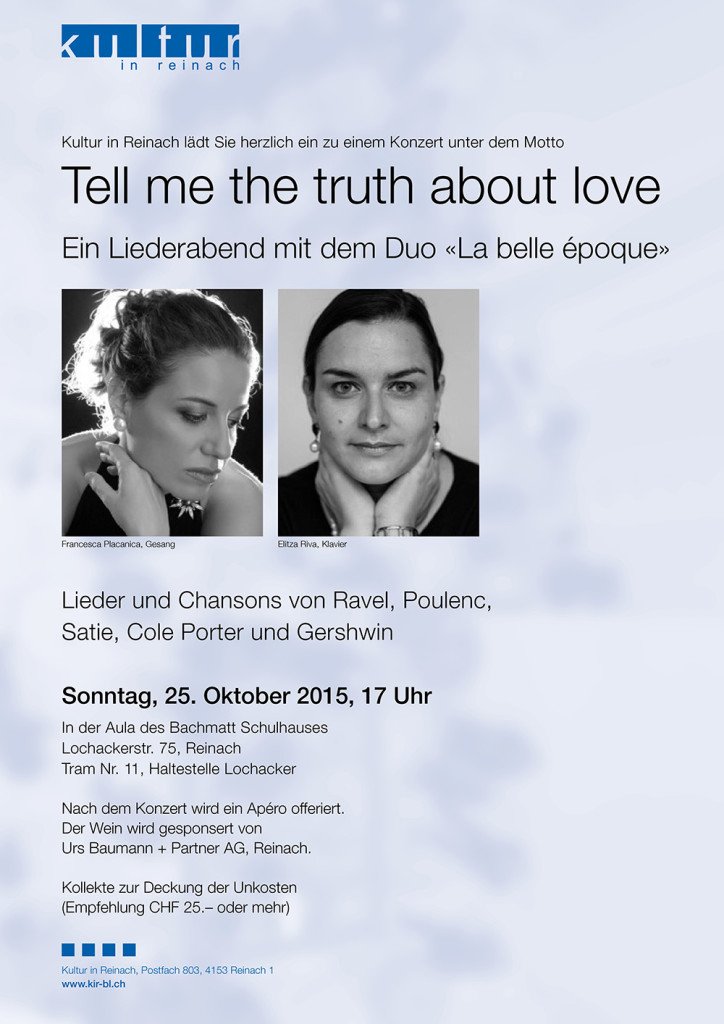‘Tell Me the Truth About Love’, a recital that playfully wonders and wanders about the nature and many facets of love. The title of the recital comes from one of William Auden’s poems, set to music by Britten in his Cabaret Songs, which are featured in our program. In continuous evolution, in its 2015 version the programme featured Music by Ravel, Poulenc, Satie, Cole Porter and Gershwin.
From our programme notes:
“Our recital explores a range of music from the late 1800s into the twentieth century. We selected musical imageries and wordplays to convey the time-worn thematic of love and its wanders in a journey that takes us from the evanescence of musical impressions to the “brutal” irony of cabaret songs. Our performance starts with Ravel’s setting of Stéphane Mallarmè Trois poèmes, which Ravel himself had defined “the strangest if not the most hermetic of Mallarmé sonnets”. The imagery conveyed by the three movements, slow and delicate the first; melancholic and vocally angular the second one, delineates a regular progress towards atonality, which fully realizes in the third and final movement. We then dive back into tonality and playful café chantant atmospheres with a few mélodies by Poulenc, Satie and Weill; the latter is not exactly a French composer, but has definitely incarnated with this setting to a French text by Brecht the suggestions of a French (and even a German) cabaret song.
Our recital moves back to the ineffable with three of Debussy’s Préludes (1912-3): La Terrasse des audiences du clair de lune; Ondine; from Book I, and Brouillards, from Book 2. The short pieces are highly evocative, and all carry a literary text at the end of the musical setting. While on one hand this allows possible interpretative suggestions on behalf of the composer, their position indicates freedom in the performative choices of each pianist.
The following set of Cabaret Songs (1937-9) was composed by Britten to Auden’s texts. While taking us to England, they fully realize the irony, mindlessness, and even the grotesque of being in love. In this playful spirit are also a few Italian songs, one, ‘A vucchella, is a most renowned Neapolitan setting by Tosti; the other two are small arias from operettas. Our colourful ride through music and lyrical verses concludes with a lighthearted sendoff enacted by a few songs by Porter and Gershwin, all fully recreating the atmospheres of 1930’s American musical theatre and film.” (Francesca Placanica)

